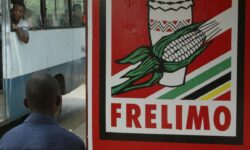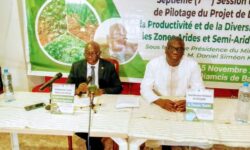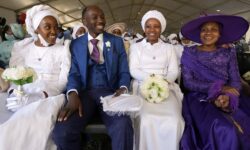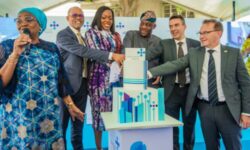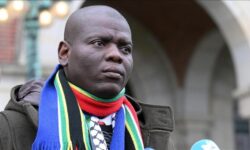Individuals with albinism are most often subjected to human rights violations in African countries due to the high prevalence rate and low awareness of the disease.
Albinos, whose limbs are used in witchcraft, face the risk of being kidnapped during elections and important sports competitions in the countries where they live. Many albinos are killed during these periods due to the superstition that albino blood must be shed to win an election or a competition.
During these periods, albinos either stay off the streets or migrate to small and relatively safe settlements in rural areas.
In many African countries, albinos are considered “non-human beings” and therefore cannot receive education, enter the workforce or even be accepted by their families.

Believed to bring luck or misfortune when seen, albinos have to struggle with physical hardships as well as the almost year-round sunny weather and discrimination in Africa.
Often not accepted by their parents, albinos are thrown out of their homes at an early age and continue their lives on the streets.
Within the scope of the “World Albinism Awareness Day” on June 13, AA correspondent met with albinos from different income groups in Senegal, where approximately 10,500 albinos live, and received information about the problems of albinos in the country from Mouhamadou Bamba Diop, President of the Senegal National Albinism Association (ANAS).

“None of us lived our childhood”
Raby Diallo Diop, 20, living in Dakar, said that he could not find a job because of the belief in society that albinos cannot do any work, and that he had difficulty buying sunscreen because of this.

“There used to be a huge mass in Senegal who spat on the ground when they saw an albino, thinking that they would die if they did not spit. When I had to go out on the street, I was treated as a witch. There are still people who spit on the ground when they see me, but the number has decreased.” Diop said that associations play an important role in raising public awareness.
Diop underlined that they experience great fear during election times and said that several of his friends were killed during these periods due to their witchcraft activities.
Pointing out that albinos have a very low chance of getting a good education, Diop continued as follows:
“Because of our poor eyesight, we should sit at the front of the class, but teachers would ostracize us and make us sit at the back of the class and never interact with us. Many albinos dropped out of school for this reason. We had no friends at school, we were always the subject of ridicule, and both teachers and students treated us very badly. I could never be a child, I could never play with children on the street, I don’t know what a school friend is. Because no one played with albinos, no one made friends with them. None of us could live our childhood. This is still a wound in my heart.”
“No one except my family wants me around”
Siran Ndiaye, 15 years old, who lives in Kaolack city, said that the 45-50 degrees Celsius heat in Kaolack was very hard on him, but he was most tired of discrimination.

Ndiaye said, “No one wants me around except my family. I’ve never made friends with my peers, I’ve always been belittled and humiliated and I couldn’t go to school. I admire the crowded and cheerful groups of girls so much, but no one will talk to me. However, I want to be seen and heard. My biggest dream is to gain the power to ask for the injustices done to us and to break this chain.”
“I get very anxious during election times”
Soukeyna Diakhate, 24, who lives in the city of Dagana in the north of the country and came to Dakar for her education, stated that her professors and friends helped her a lot at the university.
Diakhate underlined that unlike the environment at the university, the streets are still dangerous for albino individuals and said:
“When we go out on the streets, they still shout ‘poune’ (a negative expression used for albino individuals in the local language, Volof) behind our backs. Wherever I go, eyes are always on me. Especially during elections, I get very nervous and I leave Dakar and go back to Dagana, where my family is. I feel safe only there. I am not completely comfortable there either. I had a friend in Dagana, we ate and drank together, but later I found out that he wanted to cut my hair. A sorcerer told him that if he brought him albino hair he would be rich. If you are albino and someone wants to be friends with you, there is something they will take from you.”
“The problem is not being albino, the problem is society”
ANAS President Diop, himself an albino, said that when he went to the US for his university education, he was surprised to observe that albinos live like ordinary people.
Diop said, “The problem is not being albino, the problem is society. The sun hurts us and we have vision problems, yes, but if you ask ‘What is the biggest problem? Discrimination at every stage and at every level of society. If you are an albino person in Africa, you are ignored. You are not included in government programs.”
Pointing out the need for special laws protecting the rights of albino individuals, Diop emphasized that the authorities should also make efforts to raise public awareness.

Stating that access to health facilities is also vital for albino individuals, Diop said:
“It is very important that we have access to sunscreen and health services. How can albinos use a 50-dollar cream when most of them live in poverty and have to beg on the streets? Or how can they go to a dermatologist? They cannot get an education, they cannot work, they are ostracized and most of them are orphans. Albinos have the right to live with dignity. I was lucky, my parents were enlightened people, they always supported me, but most albinos are all alone. I knew such albinos who took their lives because of this social stigmatization. It is very important that we raise public awareness, and then we need free access to health services, otherwise skin cancer is inevitable.”
Diop added that government programs on albinos have been launched in some African countries and Senegal should also take steps in this regard.
“People treat you like creatures”
Khadidiatou Ndong, 41, who works as a nurse’s assistant in the Dakar suburb of Thiaroye, said she had an education she would never want to remember.

Ndong said, “People treat you like creatures, they put their clothes over their heads to avoid making eye contact with you, otherwise they believe their children will have albinos. At school, you are on your own, no one talks to you, not even the teachers. You have to fight tirelessly to get a diploma, and most of them can’t stand it and drop out. These prejudices harm us the most.”










